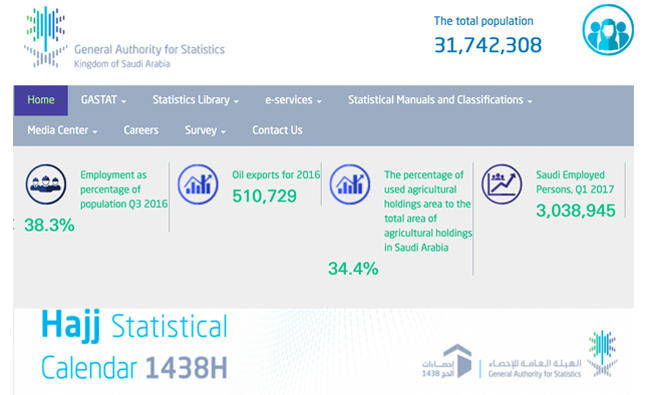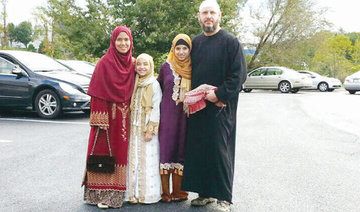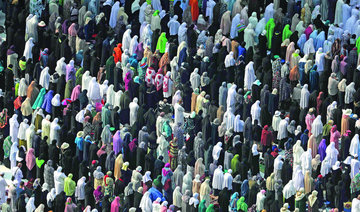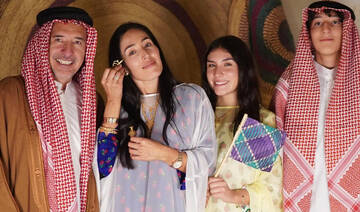MAKKAH: The General Authority for Statistics is using a comprehensive high-tech system to update the Hajj statistics program.
Four-hundred statisticians at six facilities in Makkah and three support centers in Madinah, Jeddah and Taif, work with a safe high-tech online network to provide the main centers in Makkah and Riyadh with an immediate flow of data.
Hajj data is updated every six hours through the Hajj interactive statistical map on the authority’s official website www.stats.gov.sa
The authority’s data technique agent, Khaled Al-Dalkan, said the authority is working on a regular and continuous basis to develop methods, approaches and programming techniques to collect, process, analyze and publish data to achieve comprehensive, immediate and credible information. The authority also uses high-tech techniques that help reduce the time and spatial dimensions that might hamper the speed of processing and publishing data.
He also talked about a new technique using software to collect data through an online form to keep track of the daily total number of Hajjis, classified by their nationalities, time and place of arrival and vehicle types. All statisticians in Makkah are trained to use the new techniques, he added.
Al-Dalkan stated that the authority designated a technical team to work around the clock which includes a support team, an analytic team, as well as a team specialized in developing data collection, and monitoring all remarks and demands of field teams.
He also said that an interactive map of Hajj statistics was added this year and that anyone can check number of pilgrims arriving in Makkah, with an update every sixhours.
Kingdom’s General Authority for Statistics using high-tech system to mine and update Hajj data
Kingdom’s General Authority for Statistics using high-tech system to mine and update Hajj data

AlUla inspires Saudi designer on global stage

- Dalal Al-Juhani has represented Saudi Arabia at domestic and global events, spotlighting the nation’s creative vitality and cultural richness
ALULA: A Saudi designer has channeled childhood artistic enthusiasm into a distinguished professional career, weaving AlUla’s aesthetic and cultural character into creations that celebrate authenticity, while also drawing on the Kingdom’s cultural and natural legacy.
Dalal Al-Juhani’s interest in design began early, and she has refined her skills through rigorous academic training and hands-on practice.
The designer has represented Saudi Arabia at domestic and global events, spotlighting the nation’s creative vitality and cultural richness.
Her accolades include gold at London’s International Trade Exhibition for AI-driven tourism guide attire innovation, dual Romanian and Croatian gold medals at the same event, third-place recognition in King Abdulaziz University’s handicrafts division for sustainable accessory concepts, and gold at the 2025 Saudi International Innovation and Invention Exhibition for eco-conscious jewelry inspired by the Prophet's Mosque ornamentation.
Al-Juhani strives to feature the Kingdom’s natural resources and domestic industries as foundational elements in her work.
Observing the nation’s landscapes gives designers an expanded capacity to distil beauty and integrate it within contemporary creations honoring traditional foundations, she said.
Al-Juhani acknowledges the Kingdom’s support for cultural and artistic pursuits, saying that specialized government bodies have facilitated cultural education through targeted programs, including overseas scholarships and professional development initiatives, reinforcing national expertise within creative industries and fostering excellence.
She believes designers should look beyond aesthetic production and seek to preserve heritage, safeguard cultural memory, and respect ancestral roots, while projecting national character.
AlUla constitutes a visual and intellectual touchstone throughout her portfolio. The area’s distinctive topography, archeological inscriptions, and ecological diversity inform a design vocabulary that reveals a symbiotic connection among individuals, geography, and identity, she said.














